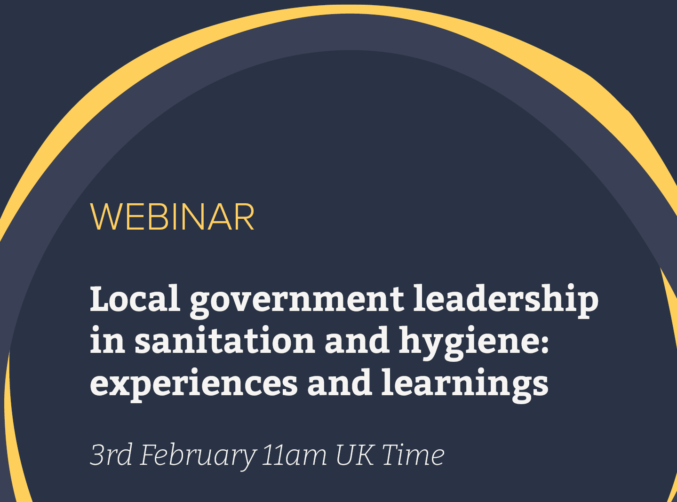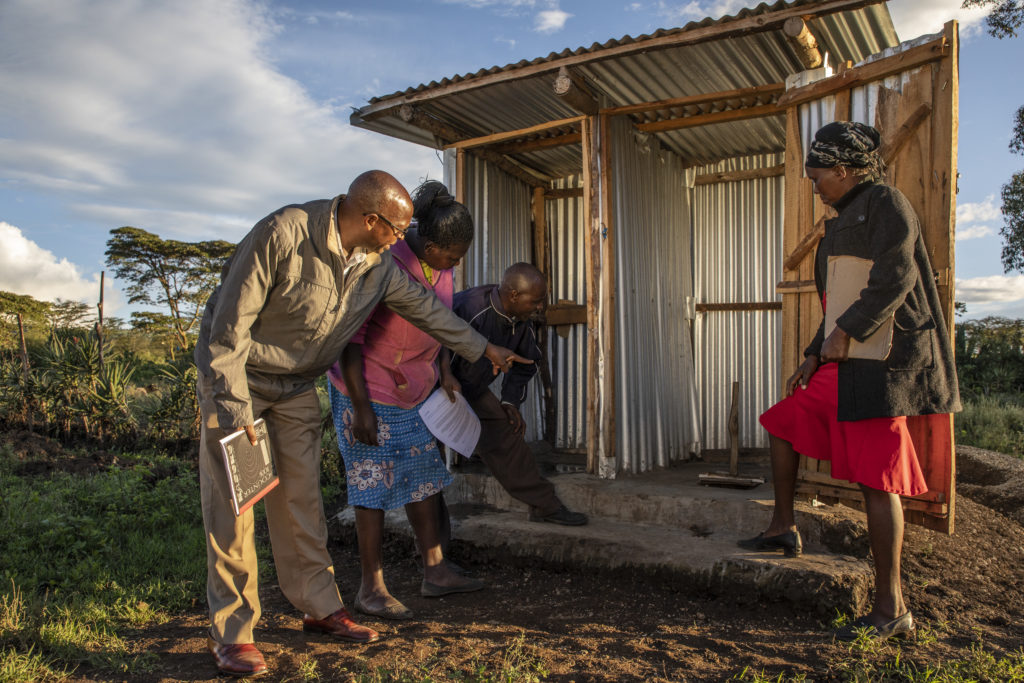For some time, local government leadership has been recognised as key to ensuring sustainability and scale and it is an important component of the emerging use of systems strengthening approaches in the sanitation and hygiene sector.
From May 2021 to a concluding webinar in February 2022, the Sanitation Learning Hub collaborated with local government actors and development partners, participating in pairs.
There were four pairs participating from four different sub-national areas:
- Benin (N’Dali commune, Helvetas),
- Ghana (Yendi municipal, UNICEF),
- Guinea (Molota commune, UNICEF)
- Nigeria (Logo LGA in Benue state, United Purpose).
We cross-analysed examples of local government leadership in S&H, looking at what led to the prioritisation of S&H, and identifying commonalities and transferable knowledge, through a participatory learning process.
Case studies were developed for each area and discussed in bilingual French/English online workshops. The case studies identified positive changes that occurred in local government leadership in S&H, and analysed the contributions to change, via document review, key informant interviews and focus group discussions. An overview of the case studies was presented in an AfricaSan 6 session, available to watch online here. You can contact us on [email protected] if you would like a copy of the case studies in PowerPoint presentation format.
This was followed by three participatory workshops. Lessons learned and recommendations revolve around the importance of reputation and accountability as triggers for local government leadership in S&H, institutional arrangements and synergies, resource mobilisation, and equity considerations.
This workstream took lessons from work on local government leadership in East Africa. In 2022, we are now building on this format trialled in East and West Africa with a new geographical focus in South Asia, East Asia and the Pacific.
Key recommendations
- Consider ‘institutional triggering’ and ‘healthy’ competition, pride and reputation.
- Encourage written commitments, civil society involvement, peer-review mechanisms and roadmaps agreed by state-level or central governments.
- Ringfence budgets and pass by-laws.
- Encourage better interplay with multiple stakeholders such as development partners and technocrats, civil society organisations, but also stakeholders from other fields such as education.
- Involve multiple levels of government in development partner work, and capture and share learning across different local areas.
- Consider a variety of context-appropriate financing models, including income-generating activities and solidarity mechanisms for those in need.
- Prioritise equity and inclusion in planning and decision-making.
- Consider an area-wide approach to expand sanitation and hygiene programming.








